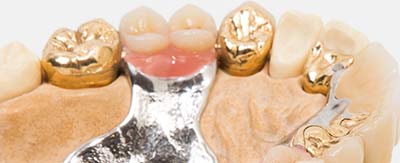 A standout in a tarnished industry, Canada Gold’s refining and settlement approach offers the dental community an innovative, efficient alternative.
A standout in a tarnished industry, Canada Gold’s refining and settlement approach offers the dental community an innovative, efficient alternative.
Dental offices across the country collect scrap dental gold and precious metals in several different forms. Extracted gold teeth, old crowns, and bridges; grindings and sweepings all hold value in the scrap material which can contain, platinum, palladium, and silver. The process of refining this material can be very difficult so many dentists simply keep their scrap “dental gold” in a safe place, but never turn it into anything of value. Canada Gold has a highly trained and state of the art equipment to handle the recycling of your dental scrap.
While the majority of the value of dental scrap comes from the gold content, up to 30% of the precious metal content is made up of platinum, palladium and silver. Most Gold Buyers will pay for only the gold content (and give you nothing in return for the platinum, palladium, and silver content). Canada Gold pays for ALL of the precious metals on the assay and refining of dental gold lots!
BBB Accredited
Transparency
No minimum quantities
Quick and easy payout
Convenient locations
Trusted service
- The material is weighed, characterized, logged into our system and the customer is notified that the material was received.
- State of the art methods are used to dissolve the metal. Through a selective process each metal is removed separately and each of the precious metals (in pure form) is weighed to determine the amount due to the customer.
- A detailed report is written for the customer describing the actual quantities of the precious metal recovered, the market metal prices, and refining.
Gold’s use in cosmetic dental procedures has been reduced considerably in recent years, with the emergence of other high-performance materials and alloys in the construction of dental implants and fillings along with the rising cost of gold.
It is still fairly common to see gold alloys used in the manufacturing of dental abutments and other non-visible crowns and implants, but the flashy gold teeth, or grills, once popular with celebrities and rappers haven’t been seen leaving dentists offices lately.
Regardless of fashion, pop culture and cost, gold will always have a place in dentistry because of some of its key elements as a metal:
Durability
In its purest form, gold is quite soft, but when mixed and alloyed with another metal the way it is in dentistry, its strength and durability can be increased exponentially while retaining its malleability, or ability to be shaped and formed. This is an important factor in dentistry.
Stable
Most metals have some sort of reaction with different elements, especially the acids and bacteria that are found inside our mouths. Think of steel and how it reacts with water (rust) or silver and oxygen (tarnishes) or just about any other type of metal. Gold, on the other hand is completely inert and non-toxic. It will not degrade through exposure to anything found in your mouth and will not interfere with the natural function of your mouth and gums.
Flexible
Teeth are natural and somewhat flexible structures. As such, it makes sense to use a material that has similar characteristics in dentistry. Gold is one of those materials. It has a certain flexibility and malleability (as mentioned earlier) that works very well in dentistry. In fact, over time, gold will naturally form to your bite and become more and more like a natural tooth.
Safe
Compared to other materials that could be used for dental crowns or caps, gold has a very low instance of causing allergic reactions and is generally considered very safe.
Value
While it certainly shouldn’t be considered an investment in the form of teeth, the truth is that gold will always have value and many years down the road, should you decide to replace them, your dental gold fillings will have some value. This is more than can be said for other dental materials.
This means that even though there is an additional cost up front, it can often be recouped down the road when you sell your dental gold to a precious metals dealer, such as Canada Gold.
